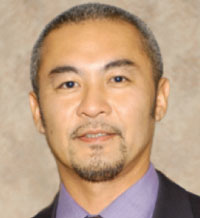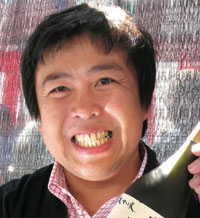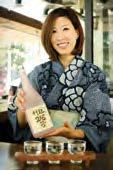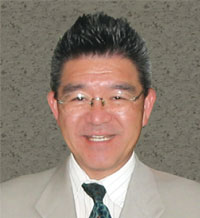Tokyo Jizake Strolling (Japanese sake from Shimane prefecture)
By Ryuji Takahashi
Many sake tasting events are held throughout Japan during the fall season. Sake breweries hustle to attend numerous sake tasting events to promote their sake as their last major job before starting their brewing season. I attended the jizake (local sake) fair organized by the Shimane Sake Brewers Association, held at the Tokyo Kotsu Kaikan (Tokyo Traffic Hall). Although there are many theories, Shimane prefecture is said to be where sake production originated, also home to the “Saka Shrine,” where the deity of sake is enshrined.
The shrine still holds a sake brewing license to brew up to 48 gallons of sake per year. The chief priest acts as the Master Sake Brewer to brew cloudy sake as an offering to the deity. The sake is also served to worshippers at the Saka Shrine Autumn Festival on October 13.
However, Shimane prefecture is not widely recognized as a sake producing region. Most people would likely name Niigata prefecture or Hyogo prefecture as renowned sake producing regions that first comes to mind. The local jizake fair is organized to celebrate Shimane prefecture as the birthplace of sake production. However, fewer breweries participated compared to the previous year, attended by fewer guests as well.
This is because the coronavirus pandemic ended and big sake tasting events are organized in various regions, thus sake breweries and consumers are widely scattered. In addition, the fall season is still hot. I visited all the sake breweries and sampled their sake. There was a time when fruity sake seemed to be popular, but recently, it seems that peculiar flavors of dry sake that are characteristic of Shimane prefecture are becoming more popular.
This may be because more sake breweries are using sake rice locally grown in Shimane prefecture for local consumption. Sake breweries seem to face the challenge of deciding how to generate sake flavors using locally grown rice to attract male and female consumers of all ages. Next week, I plan to attend another sake tasting event organized by Ichinomiya Sake Brewing Co., Ltd. (Oda city, Shimane prefecture) at a local sake specialty shop in the Hatsudai area. Chief Brewer Rika Asano will describe one sake at a time as she pours the sake for guests, an intimate tasting experience not offered at big sake tasting events.
Many sake tasting events are held throughout Japan during the fall season. Sake breweries hustle to attend numerous sake tasting events to promote their sake as their last major job before starting their brewing season. I attended the jizake (local sake) fair organized by the Shimane Sake Brewers Association, held at the Tokyo Kotsu Kaikan (Tokyo Traffic Hall). Although there are many theories, Shimane prefecture is said to be where sake production originated, also home to the “Saka Shrine,” where the deity of sake is enshrined.
The shrine still holds a sake brewing license to brew up to 48 gallons of sake per year. The chief priest acts as the Master Sake Brewer to brew cloudy sake as an offering to the deity. The sake is also served to worshippers at the Saka Shrine Autumn Festival on October 13.
However, Shimane prefecture is not widely recognized as a sake producing region. Most people would likely name Niigata prefecture or Hyogo prefecture as renowned sake producing regions that first comes to mind. The local jizake fair is organized to celebrate Shimane prefecture as the birthplace of sake production. However, fewer breweries participated compared to the previous year, attended by fewer guests as well.
This is because the coronavirus pandemic ended and big sake tasting events are organized in various regions, thus sake breweries and consumers are widely scattered. In addition, the fall season is still hot. I visited all the sake breweries and sampled their sake. There was a time when fruity sake seemed to be popular, but recently, it seems that peculiar flavors of dry sake that are characteristic of Shimane prefecture are becoming more popular.
This may be because more sake breweries are using sake rice locally grown in Shimane prefecture for local consumption. Sake breweries seem to face the challenge of deciding how to generate sake flavors using locally grown rice to attract male and female consumers of all ages. Next week, I plan to attend another sake tasting event organized by Ichinomiya Sake Brewing Co., Ltd. (Oda city, Shimane prefecture) at a local sake specialty shop in the Hatsudai area. Chief Brewer Rika Asano will describe one sake at a time as she pours the sake for guests, an intimate tasting experience not offered at big sake tasting events.
Operated by a husband and wife team of young and talented brewers, Ichinomiya Sake Brewing Co., Ltd. has garnered numerous Gold Prizes at The National New Sake Tasting Competition. Their main sake brand is “Iwami Ginzan,” an original and innovative sake introduced by this young couple. On this day, 10 different sake selections both familiar and new were served. The chief brewer avoided the use of industry jargon and carefully explained each sake product in simple terms that was easily understood by novices and connoisseurs alike. Guests seemed satisfied as they savored each sake, and many purchased quite a few sake bottles to take home. Sake, long produced in Shimane prefecture, is expected to overcome challenges as the flavors continue to evolve.
東京地酒散歩(島根の日本酒)
秋になると、各地で日本酒のイベントが多く開催される。酒蔵も造りの前の最後の大仕事として、連日イベントに参加し酒のPRに奔走する。そんな中、東京の交通会館で開催された島根県酒造組合主催の島根の地酒フェアに参加してきた。島根と言えば諸説あるが酒造り発祥の地と言われることがある地域で、そして酒造り発祥の場所で酒造りの神様を祀る「佐香神社」が有名である。今でも、神社自体は1年で1石だけ酒造りが出来る酒造免許を受けており、宮司が杜氏を務め、にごり酒を製造し、神様に奉納し、10月13日の秋季大祭で参拝者に振舞われるそうだ。そんな島根県の日本酒だが、全国的に知名度が有るかと言われると、決して酒処として認知度が高いわけではない。どちらかと言うと新潟や兵庫などを思い浮かべる人が多いだろう。
日本酒発祥の地としてのプライドとして、開催されている島根の地酒フェアだが、前年に比べると参加酒蔵が減り、来場者も減少傾向にあった。これはコロナ禍が終わり、各地で大規模な日本酒イベントが開催されるようになり、酒蔵も飲み手も分散してしまっていると同時に、秋がまだまだ暑いという季節的な要因もあるだろう。そんな中、ひと通り酒蔵を回って酒を試飲したが、一時、華やか系の酒が増えていた感があったが、ここ最近は島根らしいちょっと癖のある辛口酒がまた増えてきたなと感じている。これは、地産地消で島根の酒米を使用する酒蔵が増えてきたというのが要因だろう。その地元の米でどの様に変化を生み出し老若男女に楽しんでもらえるかというのが酒蔵の課題の様だ。翌週は初台の地酒専門店で大田市の一宮酒造の試飲販売会。杜氏の浅野理可さんが1本1本酒の説明をしながら、酒を注いでくれる大規模な日本酒イベントでは味わえない身近に酒蔵を感じるイベントだ。夫婦二人三脚の一宮酒造は元気あふれる酒蔵で全国新酒鑑評会にて何度も金賞を受賞している。若いチームながら実力派の酒蔵である。メインの銘柄は「石見銀山」だが、ここ最近は若い夫婦が考えた新たなチャレンジ酒が出てきている。この日も新旧10数種類の酒を用意していた。杜氏ながらあまり深い専門的なキーワードを使うことなく、詳しい人にも、あまり詳しくない人にも解りやすい説明で、訪れた人達は満足して酒を楽しみ、帰る際には沢山の酒を購入していた。歴史が古い島根の酒だが、まだまだチャレンジと進化が期待出来そうである。






